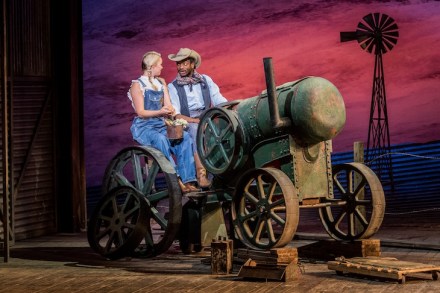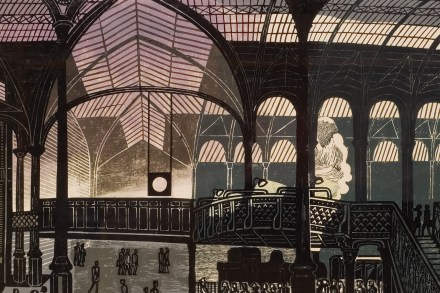Darkness visible | 14 June 2018
Oh, what a beautiful morning! In Jo Davies’s production of Oklahoma! the audience spends the overture staring at the side of a barn. Then, as birdsong rises from the orchestra, corrugated-iron doors slide open on a dustbowl farm of the 1930s. Aunt Eller (Claire Moore) is fixing a tractor, and a wind pump spins slowly against an orange dawn sky. It’s mildly surreal: the light falls as if in one of those New Deal-era western landscape paintings, with a jagged, David Smith-like sculpture of pitchforks and shovels serving as a tree. And then, with throwaway ease, Dex Lee as Curly launches into that greatest of all Broadway opening numbers. Davies




















